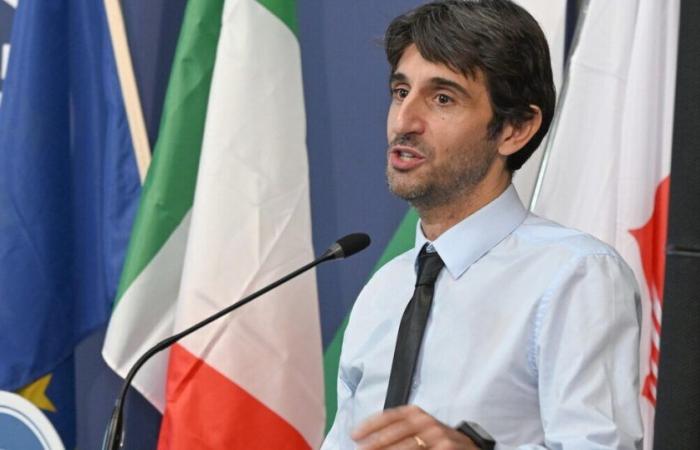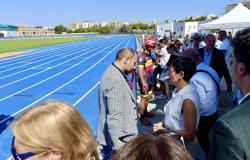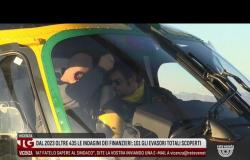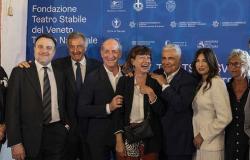
In his intentions it was to serve as a springboard for the takeover bid for Tuscany, where the right dreams of avenging the defeat of Susanna Ceccardi in 2020. But in reality the outcome of most of the municipal elections in the region, for Giovanni Donzelli, is it was a setback. An about-face, perhaps unexpected, which partly risks compromising its centrality in dealing the cards between now and the next few months. Starting from the choice of the candidate who, in all likelihood, will challenge the outgoing president Eugenio Giani next year. This is not just the case of Florence, the city of origin of the head of the Fratelli d’Italia organisation. Although obviously the ambition in the capital was very different. “In my Florence I would have preferred to win,” Donzelli himself confessed yesterday. But what makes the political prospects in the region more uncertain are also and above all the results recorded in the other municipalities. Minor, certainly, but which mark a stop for a coalition that, only in recent years, had been able to win in Siena, Grosseto, Pisa, Arezzo, Massa and Pistoia, conquering one provincial capital after another.
In his intentions it was to serve as a springboard for the takeover bid for Tuscany, where the right dreams of avenging the defeat of Susanna Ceccardi in 2020. But in reality the outcome of most of the municipal elections in the region, for Giovanni Donzelli, is it was a setback. A U-turn, perhaps unexpected, that in part risks compromising its centrality in dealing the cards from now until the next few months. Starting with the choice of the candidate who, in all likelihood, will find himself challenging the outgoing president Eugenio Giani next year. There is not only the case of Florence, the city of origin of the organization manager of Fratelli d’Italia. Even if obviously the ambition in the capital was very different. “In my Florence I would have preferred to win”, confessed Donzelli himself yesterday. But what makes the political prospects in the region more uncertain are also and above all the results recorded in the other municipalities. Minor, certainly, but which marks a setback for a coalition that, only in recent years, had been able to win in Siena, Grosseto, Pisa, Arezzo, Massa and Pistoia, conquering one provincial capital after another.
From this point of view, then, the defeats in Empoli and Calenzano are significant, where the centre-right did not even reach the run-off. As well as those in Figline and Incisa Valdarno and Signa. This is because the Florentine plain and the metropolitan city of Florence, historically red, are the main pool of votes for the conquest of the Region, given that they exceed one million inhabitants. For this reason, those who don’t make it in Florence and the Florentine area have little chance of grabbing Palazzo Strozzi-Sacrati. Hence the feeling that the successes accumulated in other provinces may be of little use. But in reality the centre-right coalition, which is now firmly led by the Brothers of Italy throughout the region, has also accumulated defeats elsewhere: in the province of Pisa it lost both in Pontedera and San Miniato. In Cortona, in the province of Arezzo, he focused on the candidate who came third, snubbing the outgoing mayor who he had supported in the previous administration and who was re-elected with the support of civic lists. In the province of Livorno it held Piombino, reconfirming the anti-regasifier mayor Ferrari, but was defeated in Cecina. In the province of Siena, the fiefdom of one of Donzelli’s loyalists, the deputy Francesco Michelotti, he lost both in Colle Val D’elsa and in Poggibonsi. And it’s not surprising, given that until a few months ago the discounts to nominate personalities drawn from the business world had failed, due to the absence of candidates ready to commit themselves to the ranks of former MSI members. In the province of Pistoia he won in Agliana but lost in Montecatini-Terme. And the result of this province is particularly important because here the strong man is the mayor of the capital, Alessandro Tomasi. That is, the same one that Donzelli would like to invest in the role of candidate in the next regional elections, also thanks to a consensus that in the re-election as mayor two years ago exceeded 50 percent and guaranteed him an election in the first round. Tomasi, moreover, comes from a history of militancy, having also been regional secretary of Youth Action.
A further detail that supported this scenario was the election of Francesco Torselli, former group leader of the Brothers of Italy in the region, in the European Parliament. A “big” member of the local party who therefore leaves room for alternative candidates. Except that the disappointing result, especially in Florence, meant that Donzelli’s plans were at least somewhat questioned. This is because in the coalition, given that the choice of the capital was made by Donzelli and the minister Sangiuliano, they are now starting to ask to wait and review the plans. Starting, for example, from the organization of primaries. And in this case, especially among the ranks of Forza Italia, we are starting to ask for it explicitly, as both the regional coordinator Marco Stella and the Tuscan FI deputy Andrea Barabotti did. In any case, there is also a change of mood to disturb people. Because the result in Florence shows that the road to conquering red Tuscany is still long. And perhaps someone in Donzelli will sooner or later come to ask for an account.





